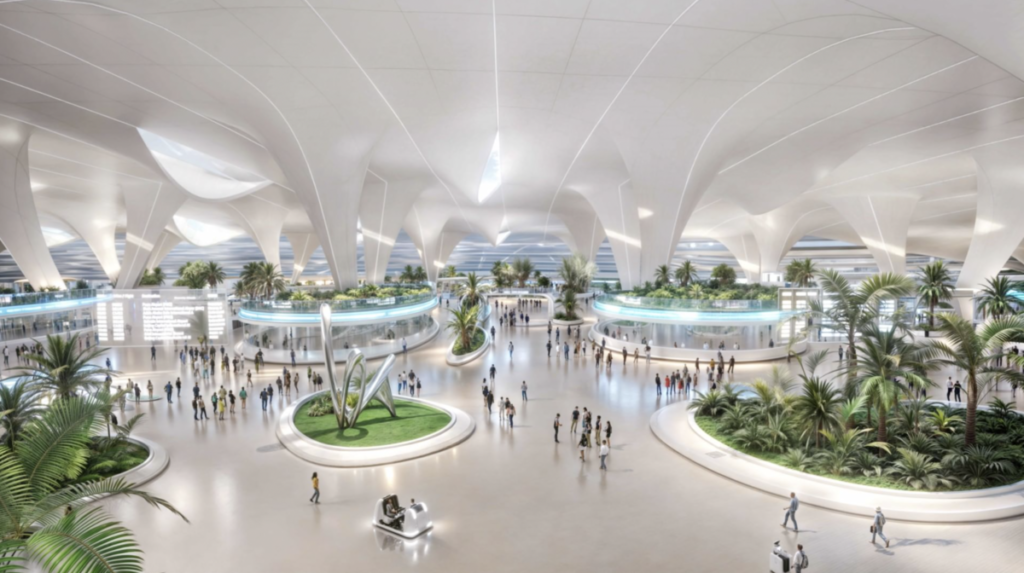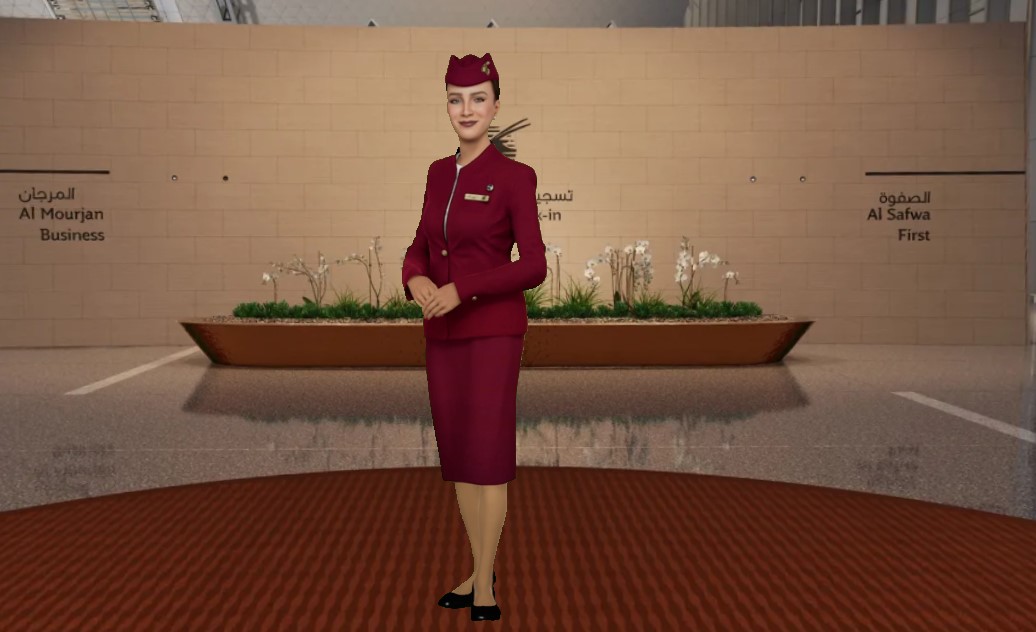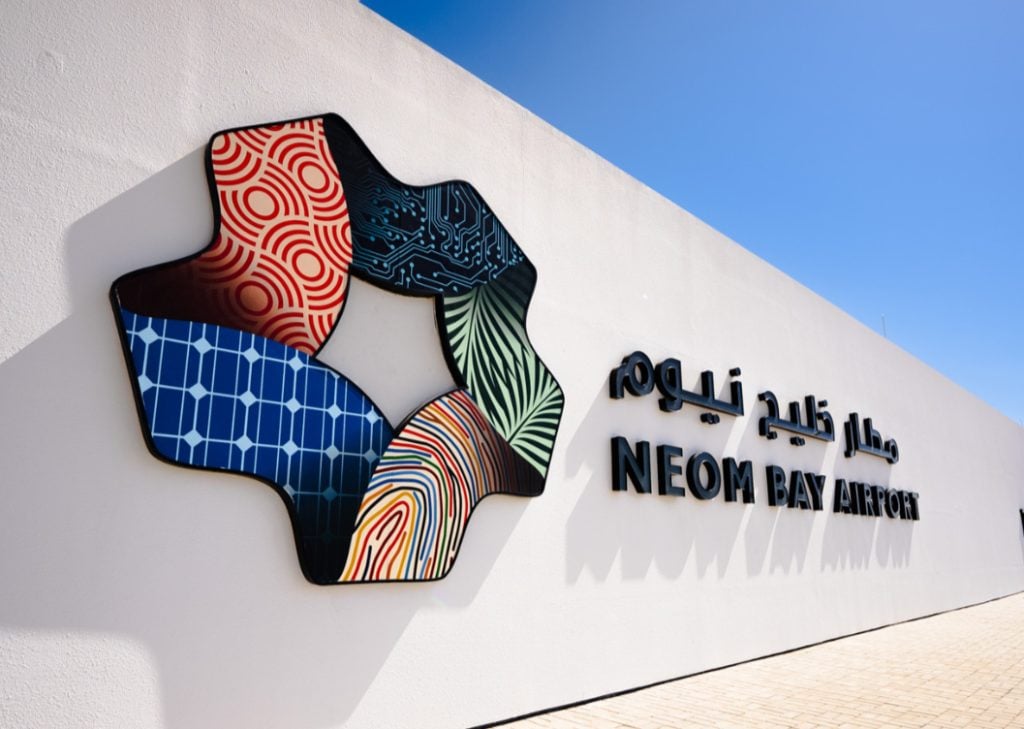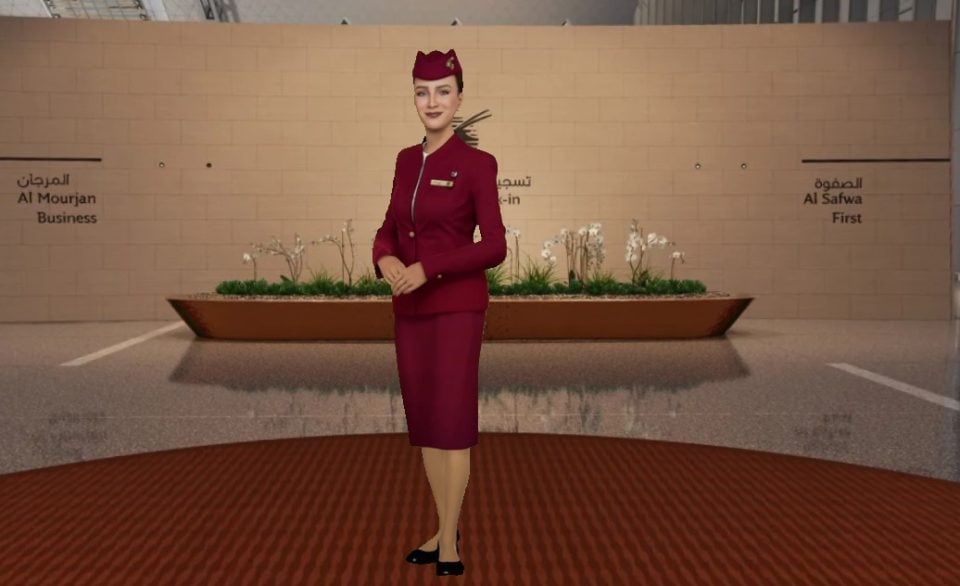Airports in the Middle East are at the forefront of integrating artificial intelligence (AI) technologies to enhance operational efficiency, streamline passenger experiences, and prepare for the future of travel. AI innovations are set to transform everything from security protocols to passenger flow management. Here is how AI is shaping aviation of the future in the region:
Abu Dhabi International Airport: Pioneering smart travel

In recent years, airports in the Middle East have been at the forefront of integrating AI into their core operations. Abu Dhabi International Airport, for example, has launched a world-first biometric smart travel project, allowing passengers to pass through various checkpoints seamlessly using AI-powered biometric facial recognition technology. This system is expected to be fully operational by 2025 and aims to streamline travel, reduce wait times, and enhance security measures.
Dubai Airports: AI-powered inventory forecasting

Dubai International Airport (DXB) and Al Maktoum International Airport (DWC) have set new standards with their AI-powered inventory forecasting systems. These systems enable airports to optimise resource allocation and minimise waste, leading to significant cost savings. The implementation of AI not only improves operational efficiency but also enhances the passenger experience by ensuring that services are readily available and well-managed.
With predictive analytics, Dubai Airports, which are one of the busiest globally, can anticipate demand fluctuations, allowing for better staffing and resource management. This forward-thinking approach is crucial as the region aims to attract more visitors and enhance the overall travel experience.
Qatar Airways: Embracing generative AI

Qatar Airways is another major player in the MENA region embracing AI. Showcasing its AI Cabin Crew at ATM Dubai 2024, the airline has focused on generative AI technologies to improve customer engagement and streamline operations. This commitment to digital innovation reflects a broader trend within the aviation sector, where enhancing the passenger experience though AI is the main priority.
With AI-driven solutions, Qatar Airways can personalise travel experiences, making it easier for customers to navigate their journeys. By leveraging AI, the airline aims to boost customer satisfaction and loyalty, which is critical for attracting younger international travellers.
NEOM Bay Airport: AI from the build

The upcoming NEOM Bay Airport has been reported to incorporate AI solutions to ensure smoother travel experiences, from automated check-ins to advanced baggage handling systems. Combining AI and biometric technology, NEOM also aims to have unmanned eGates for passport control that will automatically match travellers with their immigration, visa, and passport information. By focusing on technology, NEOM Bay Airport aims to create a unique travel experience that reflects Saudi Arabia’s Vision 2030 goals, which target 150 million tourist arrivals annually.
Enhancing the passenger experience and visitor growth through AI

The strategic use of AI in Middle East airports is likely to significantly increase visitor numbers. Airports like Dubai International are already setting global standards for passenger traffic, and AI-driven improvements can help increase capacity without the need for large-scale physical expansion. Faster processing times, reduced waiting periods, and smoother travel experiences can make airports in the region more attractive to both transit and destination travellers.
In the long term, AI could be a key factor in the region’s tourism and business strategies. For instance, Saudi Arabia’s upcoming King Salman International Airport aims to incorporate AI from the ground up. By offering world-class AI-powered services, these airports will attract more international visitors and business travellers, boosting the local economy.
The future of airports in the Middle East is undeniably intertwined with AI advancements. As these innovations unfold, they promise to boost visitor numbers, enhance passenger satisfaction, and position the Middle East as a leader in the global aviation industry. The airports of tomorrow are here today, and they are powered by AI.



